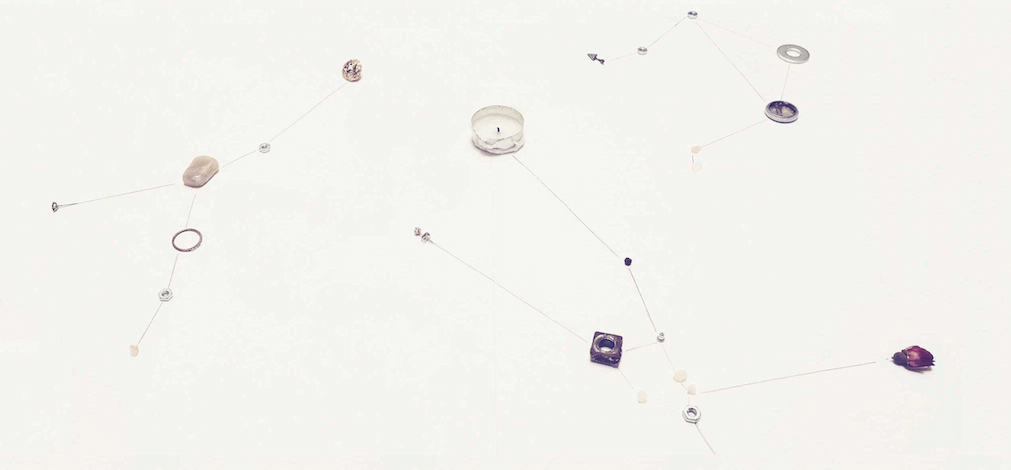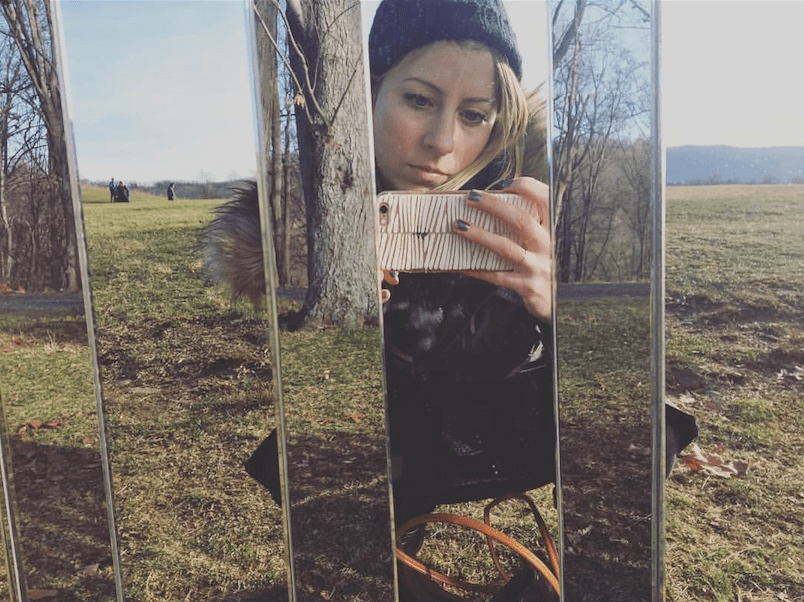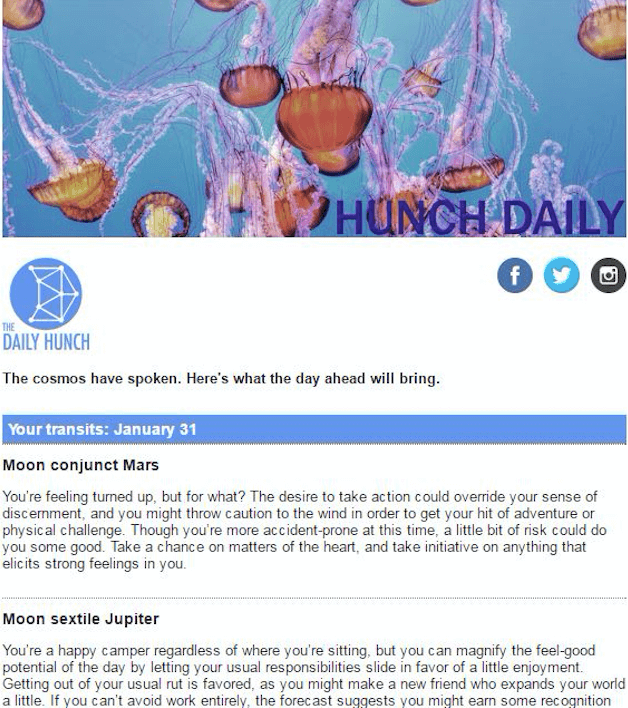The Daily Hunch: The World is Crazy—Astrology Might Help

On January 16th, the New York Times published an article called “Obama’s Secret to Surviving the White House Years: Books”. Michiko Kakutani reported that, to gain greater perspective on the unending onslaught of crises, violence, and broken systems that Obama faced as president, he read deeply. (Take a moment to weep over such astounding reason.) Presidential biographies, novels by Marylinne Robinson, Colson Whitehead’s The Underground Railroad, and writings by Martin Luther King Jr., Gandhi, and Nelson Mandela—the words of those leaders in thought and society, he said, took him out of his own head, helped him see the bigger picture, gave him calm, and a sense of “solidarity.” Yes, the stories of others helped Obama more deftly move through his own.
But among all of Obama’s preferred authors, one stuck out to me most: William Shakespeare. Specifically his tragedies. Kakutani wrote, “Shakespeare… saw the human situation entire: its follies, cruelties and mad blunders, but also its resilience, decencies and acts of grace. The playwright’s tragedies, [Obama] says, have been ‘foundational for me in understanding how certain patterns repeat themselves and play themselves out between human beings.’”
All right now, did you think this post was going to be about astrology? You are not wrong, it still is. Steph Koyfman, founder of a new website and subscription service called The Daily Hunch, is a resident of Brooklyn who subscribes to the same belief as our dearly departed president: We can gain knowledge about our own lives from the patterns that are present in the world, and over time, outside of our own limited lives and heads. Only, rather than books, Koyfman’s preferred source for that knowledge comes from the patterns found in our planets. And so she launched The Daily Hunch as a break from standard astrology websites, with a platform that is cleaner, language that is more relatable, and with information that is more precisely tailored to each user.
Astrology is, at best, a mystery to many of us; at worst, an unscientific hoax. But if President Obama knew anything (he did), and as Koyfman confirms: There are some truths about the experience of being a human that do not change. “The human brain is always searching for patterns to render meaning from a chaotic and indifferent universe, and in a weird way, we’ve figured out that patterns in our solar system resonate with patterns in our own lives,” Koyfman writes on The Daily Hunch. “As the Hermetic principle would put it, ‘as above, so below.’”
Word to that. And, regardless of what your gut says about the practice of astrology, each of us—today more than ever, I imagine—want to better understand where we fit in this chaotic world, and how better we can each make our way through it. Who does not want another tool at their disposal for that? Koyfman has done a lot of work to provide it for us. And so we asked her some questions to find out a little bit more about The Daily Hunch, how it works, and—especially for the skeptics out there—how you might find it useful.
How did you first become interested in astrology? What about it drew you in?
To be honest, I have no memory of “becoming” interested in astrology. I’m pretty sure my affinity for kooky stuff goes way back to childhood. I actually discovered an old binder of mine from 5th grade recently, and it contained some scribblings from the time my friend and I tried to be witches. I get the sense that a lot of girls go through that phase, actually. But I think I began delving into astrology more deeply toward the end of high school. One of my friends had a “birthday book” that contained personology profiles for every day of the year (you may have heard of it — it’s called “The Secret Language of Birthdays”). We used to spend hours reading through the descriptions and freaking out over how uncannily accurate a lot of them were.


(Steph Koyfman)
What kind of training did you give yourself, or get from others?
My training has mostly come from being a giant nerd over the last decade. I guess that’s how you know you’re excited by something — when you spend a good chunk of your procrastination time reading up online about abstractions most people don’t find all that fun or interesting. Having said that, I wouldn’t consider myself an astrology expert by any means — reading internet articles for 10 years is not the same as getting certified and practicing with clients for 10 years. I really only recently began to study more advanced concepts (like horary) in a more structured setting, and that’s been pretty awesome and rich and enlightening.
To the skeptics: What would you tell them about the power of astrological insight; why, even if you are doubtful of what it reveals and how it reveals it, would you argue that it is still a valuable tool?
So glad you asked! I dedicated an entire page on my website to this question, because I think it’s important to have appropriate expectations of astrology. Especially now, in an era of “alternative facts,” wherein truth and peer-reviewed science are rendered virtually meaningless. I don’t personally care whether other people “believe” in it or not (and I’m using scare quotes because I think there are many shades of belief), but I do wish people would at least get the basic premise right. There’s a lot of misinformation out there, as well as unsophisticated attitudes that taint mainstream perception of astrology. In a nutshell: astrology deals in symbols and archetypes, so it’s much more of a storytelling mechanism than a “science” (although it does involve a lot of precise mathematical calculations!). The human brain is always searching for patterns to render meaning from a chaotic and indifferent universe, and in a weird way, we’ve figured out that patterns in our solar system resonate with patterns in our own lives — as the Hermetic principle would put it, “as above, so below.” Are those correlations materially and incontrovertibly true? Of course not. We’re the ones who assigned meaning to the symbols in the first place! But even if you’re a total nihilist who scoffs at the notion of the universe “speaking” to us in a language we can understand, you’ve probably read a book or watched a movie or listened to a song that you related to hardcore, and I’m sure that book or movie or song helped you understand your situation in a deeper and more meaningful way. Astrology is a lot like that.


(An example of a daily report from The Daily Hunch.)
On a basic level (for novices, like myself) can you describe how astrology works—what factors you are particularly attuned to when you are writing horoscopes?
Okay! So contrary to popular perception, Western astrology doesn’t really deal with constellations — there’s a zodiac “wheel” that’s divided into 12 equal 30-degree sections that are loosely based on the constellations (so you get one slice of the pie that counts as Aries territory, for example). For the record, this is also why NASA didn’t “create” a 13th sign. We’re dealing with a tropical zodiac that always aligns with the Earth’s seasons (rather than actual stars in the sky).
This wheel, or chart, acts as a sort of map for where the planets happen to be at any given moment from our perspective here on Earth. When two planets form a specific type of angle with one another, that’s called an aspect, and that relationship means something specific every time. Basically, you’ve got a ton of different variables (like signs and planets and aspects), and they all have many shades of potential meaning attached to them. Here’s an example: Jupiter (planet of expansion) formed a square (a conflict-producing 90-degree angle) with Mercury today (planet of expression and communication). For better or for worse, Jupiter exaggerates whatever it touches. Since we’re dealing with a tense square, you could read that as “people mouthing off or overstating their opinions.” You would also consider the fact that Jupiter is in Libra and Mercury is in Capricorn, which characterizes this dynamic further. Libra loves to see things from every possible angle (read: devil’s advocate), and Capricorn is “all about the facts, ma’am.” You can see where I’m going with this.
The personalized reports I provide on my website actually compare the current chart with your natal chart. Basically, what this means is that you can have Mars doing something right now in the same exact corner of the zodiac that Venus was in at the time of your birth. This dance between Mars IRL and your birthday Venus is called a transit, or a special astrological event that’s affecting you specifically. So you can see why this gets way more specific than basic sun-sign horoscopes meant for you and every other person born that same month.
What is the best outcome that you hope to be able to provide to people through your work?
Insight and understanding! Or at the very least, delight.
How would you say your approach varies from other readings or horoscopes that you have seen?
There are a ton of websites online where you can go to look up your chart, or even download a monthly report of transits for a small fee. Many of them are packed with great information. But I’m not sure that I’ve seen a lot of sites (or any, really), that serve those readings to you on a subscription basis, and especially not in a modern, visually appealing format. More than anything, though, I think people connect with certain astrologers because they like the way they break things down. My approach is different because — well, I’m me! I have a voice, and amazingly enough, I’m able to reach people with it.
You might also like 



















